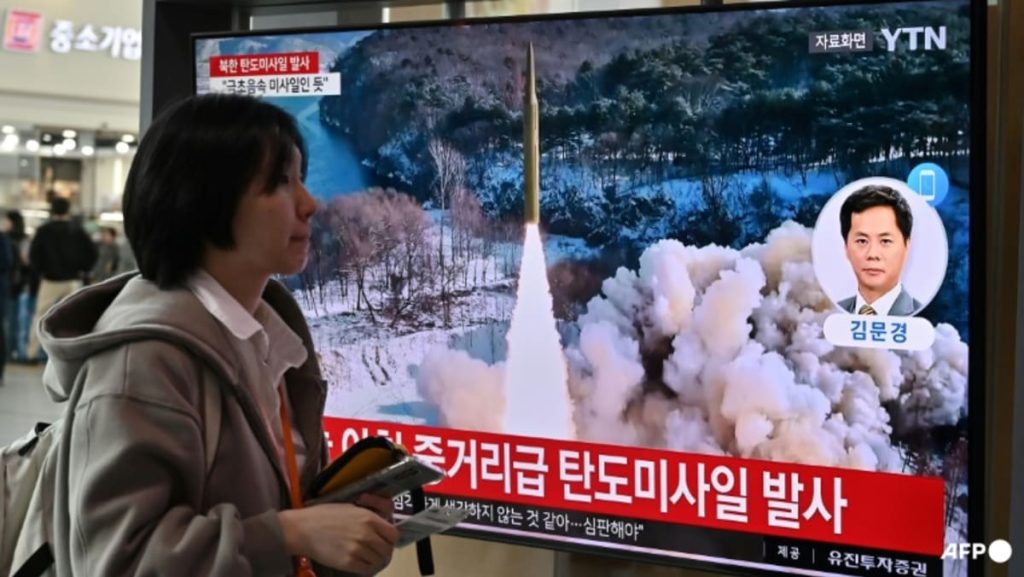im Jong Un oversaw the test-firing of a new tactical guided weapon, in what was seen as a move to demonstrate the country’s military capabilities and raise pressure on the United States and South Korea amid stalled nuclear talks. The missile launch and joint aerial exercise highlight the ongoing tensions between North Korea and its neighbors, as well as the United States, and raise concerns about the potential for escalation in the region.
The missile fired by North Korea on Tuesday was reported to be a medium-range ballistic missile, which is capable of reaching targets in South Korea and Japan. This latest launch is just one of a series of missile tests conducted by North Korea in recent months, despite calls for denuclearization from the international community. The country’s defiance of international norms and continued missile testing has been a source of concern for regional stability and security.
In response to North Korea’s missile launch, South Korea, the United States, and Japan conducted a joint aerial exercise involving nuclear-capable B-52H bombers. The show of force by the three countries sends a clear message to North Korea that its provocative actions will not be tolerated and that there will be consequences for its continued defiance. The joint exercise also serves as a demonstration of the allies’ commitment to maintaining peace and stability in the region.
The timing of North Korea’s missile launch and the joint aerial exercise involving B-52H bombers is significant, as it comes shortly after Kim Jong Un oversaw the test-firing of a new tactical guided weapon. This series of provocative actions by North Korea can be seen as a deliberate effort to assert its military strength and leverage in negotiations with the United States and South Korea. The increased tensions in the region also raise concerns about the potential for miscalculation or conflict that could have far-reaching consequences.
The international community, including the United States, South Korea, and Japan, have condemned North Korea’s missile launch and called for the country to return to the negotiating table to discuss denuclearization. Despite the stalled talks and continued missile tests, there is still hope for a diplomatic resolution to the ongoing tensions on the Korean peninsula. The challenge now lies in finding a way to bring North Korea back to the negotiating table and restarting the dialogue on denuclearization.
Overall, the latest missile launch by North Korea and the joint aerial exercise involving B-52H bombers serve as a reminder of the ongoing tensions and challenges in the region. The actions of North Korea continue to pose a threat to regional stability and security, and the international community must remain vigilant in addressing these provocations. Diplomatic efforts to engage North Korea in discussions on denuclearization must continue, even in the face of heightened tensions and provocations. The need for dialogue and de-escalation remains critical in order to prevent a further deterioration of the situation on the Korean peninsula.


